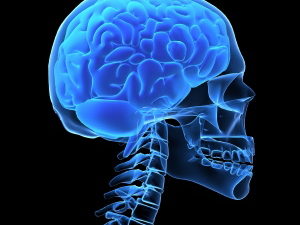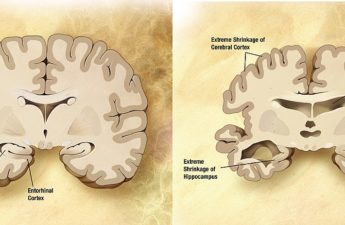Category: Brain and Nervous System
Brain waste-clearance system shown in people for first time
The scans showed cerebrospinal fluid flowing into the brain through distinct channels—along the perivascular spaces, the fluid-filled spaces that run alongside blood vessels in the brain. These findings match earlier imaging results seen in mice
Alzheimer’s disease may damage the brain in two phases
Allen Institute and UW School of Medicine brain mapping study uncovers which cell types may be harmed first.
Health News Headlines
Human-to-human bird flu transmission – Man dies of rabies – DASH diet – Senior moments – 23andME DNA up for sale
Delirium: this common and frightening syndrome looks like dementia, but comes on much faster
Delirium is a common complication of hospitalization can have a direct impact on patients’ illness and mortality rates. It is therefore extremely important to prevent it, or, failing that, to establish an early diagnosis in order to treat it correctly.
Health News Headlines
Washington to keep abortion pill stockpile – Free COVID tests – Brett Favre diagnosed with Parkinson’s disease
Mobile phones are not linked to brain cancer, according to a major review of 28 years of research
The possibility that mobile phones might cause cancer has been a long-standing concern. Mobile phones – and wireless tech more broadly – are a major part of our daily lives. So it’s been vital for science to address the safety of radio wave exposure from these devices.
Microplastics are in our brains. How worried should I be?
Sarah Hellewell, Curtin University; Anastazja Gorecki, University of Notre Dame Australia, and Charlotte Sofield, University of Notre Dame Australia Plastic is in our clothes, cars, mobile phones, water bottles and food containers. But recent research adds to growing concerns about…
Health News Headlines
Dementia drug debate – Should you take Paxlovid? – Free COVID tests coming – EEE in MA – Stem cell diabetes study
Being a ‘weekend warrior’ could be as good for brain health as exercising throughout the week, new study shows
The findings of a new study suggest “weekend warriors” – those who get most of their exercise on the weekend – may enjoy the same brain health and mental health benefits as those who exercise regularly throughout the week.
Health News Headlines
Measles in Oregon and Georgia – Obesity drug cuts diabetes risk 93% – Playstation is good for you
Self-adjusting brain pacemaker may help reduce Parkinson’s disease symptoms
Implanted device responds to changes in brain biomarkers of Parkinson’s symptoms by adjusting stimulation, allowing the treatment to be tailored to a patient’s needs in real time.
Health News Headlines
Needleless treatment for severe allergic reactions – US fertility rate at record low – Hunt for Adderall is On
Health News Headlines
Medicare drug discounts – Dementia risk – Urban birds and antibiotic resistance
HIIT workouts linked with better brain health, research finds – even five years later
A recent study has now revealed that one particular type of workout may be better than others when it comes to boosting brain health. The researchers found a link between high-intensity interval training (HIIT) workouts with better memory and brain volume in older adults. And, these brain benefits even lasted up to five years after the study was completed.
Health News Headlines
Fewer than half of US adults under 50 can readily afford or access healthcare – Misdiagnosis Is A Big Problem For Older Adults – Drugs Used For Weight Loss Help People Stop Smoking – Most Antibiotic Prescriptions For Kids’ Ear Infections Are Too Long – Blood tests for Alzheimer’s diagnosis were 91% accurate in new study













